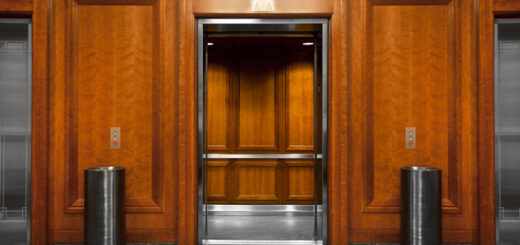Corona Diary: Day 11 – a bit of a laugh
Has anyone ever actually been pleased to have a practical joke played on them? Not just relieved when it turned out all their trousers hadn’t really been chewed up by the waste disposal, or a good sport when they discover their all hands company presentation has had an inappropriate video spliced into the middle of it. Has anyone ever been genuinely pleased that the joke happened in the first place? I mean, we’d all be delighted if the current situation turned out to be a bit of a wheeze dreamed up by Trump and Boris to make the long winter nights pass less slowly, but after we’d all rushed back to the pubs and clubs to desperately drink a month’s worth of last pints, would we really be chuckling softly to ourselves and wondering what the boys will do to top it next year?
The history of April’s Fools Day is lost in antiquity. Some even claim it to date back to Noah himself, where we celebrate how much of an idiot Noah was for sending out the dove to look for dry land before the flood waters had receded (the complete fool). And, to be fair, there’s been some pretty awesome pranks in the past. The spaghetti trees, for example, when the BBC duped a gullible public into believing that Italians were just beginning the spaghetti harvest, with pictures of smiling housewives picking long strands of pasta from hanging branches being broadcast on the evening news. That’s a good joke. It’s clever, its well put together, and it harms no-one. Yet, even that, had its critics, with many newspapers suggesting that it was not the remit of the BBC to make the public look foolish. This was, of course, before the advent of the Generation Game.
Of course, the greatest April Fools joke of all time is probably the man who trolled an entire town into believing a nearby volcano was erupting. Residents of Sitka in Anchorage work up one April morning to see smoke billowing out of the nearby Mount Edgecumbe. Terrified for their lives, they contacted the local coastguard who flew out to investigate, then immediately burst out laughing when he saw a pile of burning tires in the crater and, spray painted in the nearby snow, the words ‘April Fool’. Classic.
One thing that Porky Bickar, the man in question, had over other, questionable, pranksters was that he did, at least, inform the police beforehand. Not the coastguard, though, hence the frantic helicopter flight into the crater. Most importantly, years later when Mr Bickar encountered the Admiral in charge of the coastguard at a party, the Admiral told a slightly nervous Bickar that he had thoroughly enjoyed the stunt. In fact, the reaction of every citizen of Sitka had been overwhelmingly positive. Once they got over fearing for their lives, it turned out that Porky Bickar had brought a little joy to everyone.
Perhaps this is the secret. The art of the practical joke is not in the execution but in the reaction. Some people do like to be fooled. There is a theory that laughter is a reaction to stress released, an almost visceral response to the fact that danger has passed. Others go even further, suggesting that laughter is the opposite of our ancestors alarm calls, an evolution of the all clear signal sounded by ancient primates to indicate that what seemed dangerous is safe and we can all go back to our business.
From that point of view, in the same way that horror films allow us to feel the adrenaline of fear in a safe environment, maybe practical jokes allow us to feel an artificial sense of danger passing in a way that bonds us together as a community. It is a tricky feat to do well. A joke mindlessly played, without thought as to how it will be received, is more likely to tear us apart than bring us together. But a joke well executed, with full awareness that the recipients will be appreciative, is a joy to behold.
Laughter is, in a time of virus, often the best medicine. I encourage you all to reach out to the person nearest to and tell them your worst Dad joke. Something filled with puns and a payout you can see coming a mile off. I guarantee they’ll laugh. Or at least groan in an indulging way.
Just be sure of your audience. If you want to make someone laugh, you need to be sure they’ll find it funny.




Recent Comments